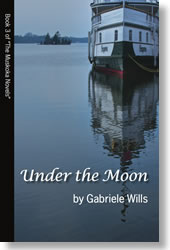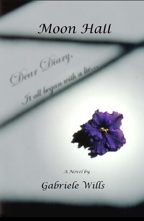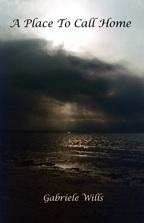Are we losing our identities in this information rich age when we Twitter, text, email, share our thoughts and activities with the world on Facebook and other social networking sites? Such was the prediction I heard recently from a biographer who claims that since we no longer write letters, we won’t leave records of our journeys through life. Who keeps emails? Whatever bits of ourselves we send into cyberspace are as ephemeral as stardust.
You might think that for most of us it would only matter to our families, but as an historical researcher, I can attest to the importance of correspondence from everyone, whether Lady or servant, Prime Minister or clerk, child or octogenarian. It is through letters from soldiers and nurses that I learned what life was like during the Great War. Not so much about the war itself, since they were reluctant to upset their families with gruesome reports that probably would not have passed the censors in any case. But they did discuss what they did on leave, who they met, how much things cost, what they ate, where they lived, how their beliefs sustained them - or not. The trivia of daily life is rather meaningless while we live it, but is of immense importance to someone trying to recreate an era 100 years later, as are the nuances of language, convention, and social interaction that shine from those missives.
Here are some excerpts from Frances Cluett’s letters home (
Your Daughter Fanny: The War letters of Frances Cluett, VAD, edited by Bill Romkey and Bert Riggs), beginning in 1916 when she went overseas from Newfoundland (not yet a part of Canada) as a volunteer nurse:
Before leaving - “[The doctor] inoculated us underneath the collarbone. Oh my! Wasn’t it tender afterwards, I could hardly bear the weight of my clothes on it, it was just like a boil… We have to have three inoculations… I just dread it.”
In England - “Oh Mother! We are put on rations. A 2 lb. loaf of bread must last us two days: and we are also given [1/2] lb. sugar to do us for a week. Each nurse was presented with a small bag to hold her loaf of bread and tin of sugar.”
From a French hospital - “I go on duty at ten minutes to eight in the evening and come off at 8 a.m… I have the care of five wards at night; so you can imagine I am kept a bit busy…. One must keep a look out for all sorts of things, such as amputation bleedings, deaths, drinks, etc. This is a very wicked world, mother; you cannot realize what sufferings there are. Some of the misery will ever live in my memory.”
“Mother I have never seen so many flowers in all my life as I have seen since I came to Rouen. All the hospital tents have them at their front entrances; oh! they are beautiful.”
“Ah! Lil, many a bedside have I stood by and watched the last breath, with rats rushing underneath the bed in groups, and the lights darkened.”
The letters are rich with details, as are the ones compiled by
R. B. Fleming in
The Wartime Letters of Leslie and Cecil Frost 1915-1919.
In England - “It’s lucky for Les and I that we don’t drink as the bill that most fellows run up is a corker - twenty to thirty dollars a month is a whole lot to spend on drinking, but the big majority do all the same.”
Somewhere in France (as they weren’t allowed to say where) - “There was a canteen - imagine, near the front line, as well as writing rooms and ablution rooms for the men - and all underground. Really, this war is getting to be a business.”
“Cecil and I had Christmas dinner together and a very good dinner it was, turkey, etc. etc. He is situated only a mile and a half from here and so we are able to see each other often.”
March 23, 1918 - “Just a brief line - The Date above will be enough to explain this note if you follow the papers. Just want to say that I am taking [into battle] Mother’s last two letters, which she wrote previous to her operation. I think they would be a help to anybody. Don’t worry about me…. Somehow I can’t say much more. I love you all dearly.”
Both brothers were wounded, Leslie quite seriously, spending about 9 months in hospital. He went on to become Premier of Ontario from 1949 - 1961.
There are many websites that showcase letters from the men and women who went overseas during the First World War - some of these can be accessed from my website,
Odd, Intriguing, Surprising Facts About WW1. They are sometimes poignant, usually filled with minutiae, but always fascinating and enlightening, and a treasure trove for those interested in the social history of an era. They are, after all, voices from the past.















